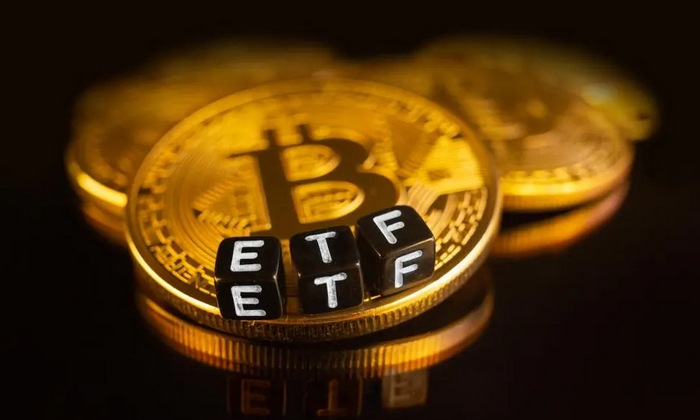-
 Bitcoin
Bitcoin $85,764.8527
1.24% -
 Ethereum
Ethereum $1,640.5294
0.24% -
 Tether USDt
Tether USDt $1.0000
0.02% -
 XRP
XRP $2.1500
0.59% -
 BNB
BNB $588.7662
-0.32% -
 Solana
Solana $131.5367
-1.14% -
 USDC
USDC $1.0000
0.02% -
 TRON
TRON $0.2514
-1.99% -
 Dogecoin
Dogecoin $0.1600
-2.46% -
 Cardano
Cardano $0.6448
0.06% -
 UNUS SED LEO
UNUS SED LEO $9.4288
0.43% -
 Chainlink
Chainlink $12.6840
-0.85% -
 Avalanche
Avalanche $19.9707
-1.42% -
 Stellar
Stellar $0.2409
-1.40% -
 Toncoin
Toncoin $2.9683
4.86% -
 Sui
Sui $2.2028
-3.53% -
 Shiba Inu
Shiba Inu $0.0...01196
-1.71% -
 Hedera
Hedera $0.1665
-0.67% -
 Bitcoin Cash
Bitcoin Cash $334.5521
-1.50% -
 Litecoin
Litecoin $78.0450
0.05% -
 Polkadot
Polkadot $3.6939
0.58% -
 Hyperliquid
Hyperliquid $16.3730
2.95% -
 Dai
Dai $1.0000
0.00% -
 Bitget Token
Bitget Token $4.3455
1.79% -
 Pi
Pi $0.7432
-1.89% -
 Ethena USDe
Ethena USDe $0.9991
0.01% -
 Monero
Monero $212.4327
1.86% -
 Uniswap
Uniswap $5.3960
-0.99% -
 OKB
OKB $52.1734
-1.18% -
 Pepe
Pepe $0.0...07430
-0.42%
is bitcoin etf a good investment
Bitcoin ETFs provide a simplified and regulated way to diversify portfolios with exposure to the growing cryptocurrency market, but it's crucial to consider their volatility, fees, and tracking errors to assess suitability.
Oct 27, 2024 at 05:34 pm

Is Bitcoin ETF a Good Investment?
What is a Bitcoin ETF?
A Bitcoin ETF (exchange-traded fund) is an investment vehicle that tracks the price of Bitcoin. It allows investors to gain exposure to the cryptocurrency without having to buy and store it directly.
Benefits of Investing in Bitcoin ETFs
- Diversification: Bitcoin ETFs provide a way to diversify your investment portfolio and reduce risk.
- Liquidity: ETFs are highly liquid, making it easy to buy and sell them on stock exchanges.
- Simplicity: Investing in Bitcoin ETFs is relatively simple and does not require technical knowledge of cryptocurrencies.
- Regulation: Bitcoin ETFs are regulated by the Securities and Exchange Commission (SEC), which provides some level of protection for investors.
Risks of Investing in Bitcoin ETFs
- Volatility: Bitcoin is a highly volatile asset, and the value of Bitcoin ETFs can fluctuate significantly.
- Fees: ETFs typically charge management fees, which can reduce your returns.
- Tracking error: Bitcoin ETFs may not perfectly track the price of Bitcoin, leading to potential losses.
Should You Invest in Bitcoin ETFs?
The decision of whether or not to invest in Bitcoin ETFs depends on your individual investment goals, risk tolerance, and financial situation. Here are some factors to consider:
1. Your Investment Horizon: Bitcoin ETFs may be suitable for long-term investments as they provide a way to gain exposure to the growth potential of Bitcoin. However, they may not be appropriate for short-term investments due to their volatility.
2. Your Risk Tolerance: Bitcoin is a high-risk asset, and investing in Bitcoin ETFs carries the potential for significant losses. If you are not comfortable with the potential risks, you should consider alternative investments.
3. Your Financial Situation: Ensure that you have the financial means to invest in Bitcoin ETFs and that you are adequately diversified to manage the risks involved.
Conclusion
Bitcoin ETFs offer convenient and regulated access to the cryptocurrency market. However, it is crucial to understand the risks involved and consider your individual investment goals and financial capacity before investing. By carefully weighing the benefits and risks, you can make an informed decision about whether or not Bitcoin ETFs are a suitable investment for you.
Disclaimer:info@kdj.com
The information provided is not trading advice. kdj.com does not assume any responsibility for any investments made based on the information provided in this article. Cryptocurrencies are highly volatile and it is highly recommended that you invest with caution after thorough research!
If you believe that the content used on this website infringes your copyright, please contact us immediately (info@kdj.com) and we will delete it promptly.
- MS Dhoni-led Chennai Super Kings (CSK) returned to winning ways with a five-wicket victory over Lucknow Super Giants at the Ekana
- 2025-04-15 17:00:14
- Echo, a groundbreaking centralized cryptocurrency exchange, has announced that it will officially launch globally on May 15, 2025.
- 2025-04-15 17:00:14
- Pi Network's Chainlink Integration Sparks 35% Price Increase, Shocking the Markets
- 2025-04-15 17:00:12
- Meana Raptor Launches Its Private Presale for $MRT
- 2025-04-15 17:00:12
- Trump Tariff Revenues To Fund US Bitcoin Reserve
- 2025-04-15 16:55:18
- 79 companies now hold nearly 700,000 BTC, equivalent to an estimated treasure of 57 billion dollars.
- 2025-04-15 16:55:18
Related knowledge

What is the difference in returns between long-term holding of a Bitcoin ETF and holding Bitcoin directly?
Apr 09,2025 at 04:15am
When considering the difference in returns between long-term holding of a Bitcoin ETF and holding Bitcoin directly, it's essential to understand the nuances and factors that affect each investment option. Both approaches have their unique advantages and potential drawbacks, which can significantly impact the overall returns over time. Understanding Bitc...

How is the "roll cost" of a futures Bitcoin ETF generated?
Apr 08,2025 at 01:22pm
The 'roll cost' of a futures Bitcoin ETF is a critical concept for investors to understand, as it directly impacts the performance of the ETF. In this article, we will delve into the mechanics of how the roll cost is generated, exploring the underlying processes and factors that contribute to this cost. Understanding Futures ContractsFutures contracts a...

How can the premium or discount of a Bitcoin ETF be narrowed through an arbitrage mechanism?
Apr 09,2025 at 12:07am
Arbitrage mechanisms play a crucial role in narrowing the premium or discount of a Bitcoin Exchange Traded Fund (ETF). Understanding how these mechanisms work can provide valuable insights into the dynamics of Bitcoin ETFs and their relationship with the underlying asset. This article will delve into the specifics of how arbitrage can be used to align t...

What factors affect the bid-ask spread of a Bitcoin ETF?
Apr 08,2025 at 08:50pm
The bid-ask spread of a Bitcoin Exchange Traded Fund (ETF) is a critical metric that investors and traders closely monitor. It represents the difference between the highest price a buyer is willing to pay (bid) and the lowest price a seller is willing to accept (ask). Several factors influence this spread, and understanding them can help investors make ...

How is the seed capital of a Bitcoin ETF used?
Apr 10,2025 at 02:15pm
The seed capital of a Bitcoin ETF plays a crucial role in the establishment and operation of the fund. This initial investment is used to create the fund's underlying assets, manage operational costs, and ensure the ETF can start trading on an exchange. Understanding how this seed capital is utilized provides insight into the mechanics of Bitcoin ETFs a...

What is the difference between "physically backed" and "synthetic" Bitcoin ETFs in terms of holding assets?
Apr 10,2025 at 04:56pm
Bitcoin Exchange Traded Funds (ETFs) have become a popular way for investors to gain exposure to the cryptocurrency market without directly owning the underlying asset. There are two primary types of Bitcoin ETFs: physically backed and synthetic. Understanding the differences between these two types, particularly in terms of how they hold assets, is cru...

What is the difference in returns between long-term holding of a Bitcoin ETF and holding Bitcoin directly?
Apr 09,2025 at 04:15am
When considering the difference in returns between long-term holding of a Bitcoin ETF and holding Bitcoin directly, it's essential to understand the nuances and factors that affect each investment option. Both approaches have their unique advantages and potential drawbacks, which can significantly impact the overall returns over time. Understanding Bitc...

How is the "roll cost" of a futures Bitcoin ETF generated?
Apr 08,2025 at 01:22pm
The 'roll cost' of a futures Bitcoin ETF is a critical concept for investors to understand, as it directly impacts the performance of the ETF. In this article, we will delve into the mechanics of how the roll cost is generated, exploring the underlying processes and factors that contribute to this cost. Understanding Futures ContractsFutures contracts a...

How can the premium or discount of a Bitcoin ETF be narrowed through an arbitrage mechanism?
Apr 09,2025 at 12:07am
Arbitrage mechanisms play a crucial role in narrowing the premium or discount of a Bitcoin Exchange Traded Fund (ETF). Understanding how these mechanisms work can provide valuable insights into the dynamics of Bitcoin ETFs and their relationship with the underlying asset. This article will delve into the specifics of how arbitrage can be used to align t...

What factors affect the bid-ask spread of a Bitcoin ETF?
Apr 08,2025 at 08:50pm
The bid-ask spread of a Bitcoin Exchange Traded Fund (ETF) is a critical metric that investors and traders closely monitor. It represents the difference between the highest price a buyer is willing to pay (bid) and the lowest price a seller is willing to accept (ask). Several factors influence this spread, and understanding them can help investors make ...

How is the seed capital of a Bitcoin ETF used?
Apr 10,2025 at 02:15pm
The seed capital of a Bitcoin ETF plays a crucial role in the establishment and operation of the fund. This initial investment is used to create the fund's underlying assets, manage operational costs, and ensure the ETF can start trading on an exchange. Understanding how this seed capital is utilized provides insight into the mechanics of Bitcoin ETFs a...

What is the difference between "physically backed" and "synthetic" Bitcoin ETFs in terms of holding assets?
Apr 10,2025 at 04:56pm
Bitcoin Exchange Traded Funds (ETFs) have become a popular way for investors to gain exposure to the cryptocurrency market without directly owning the underlying asset. There are two primary types of Bitcoin ETFs: physically backed and synthetic. Understanding the differences between these two types, particularly in terms of how they hold assets, is cru...
See all articles























































































